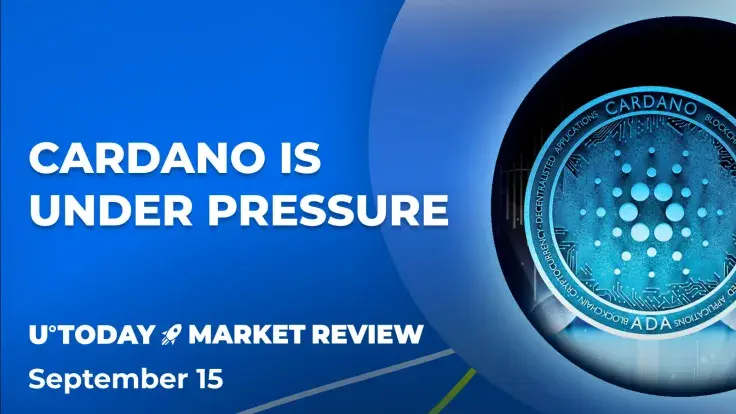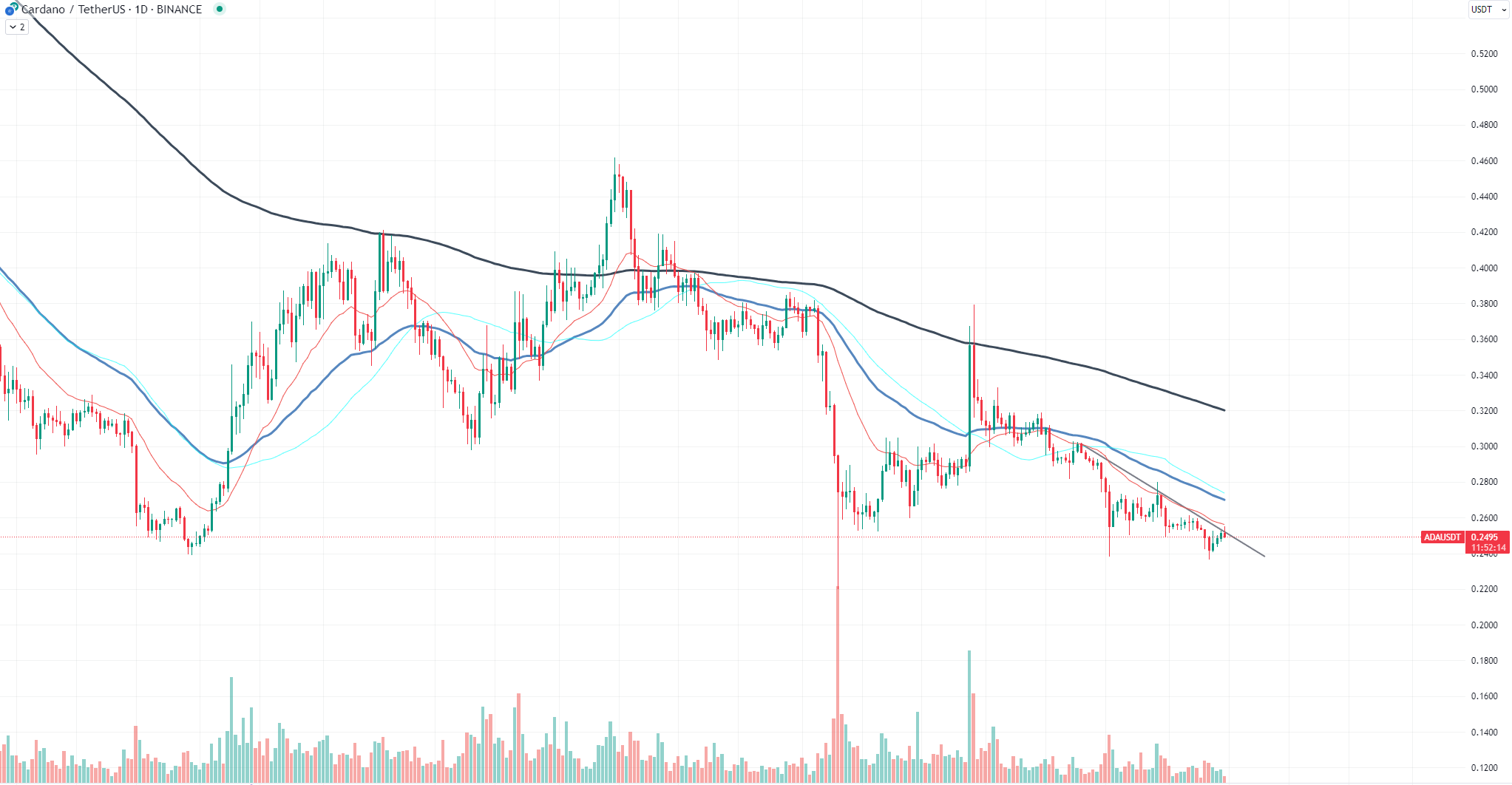
Disclaimer: The opinions expressed by our writers are their own and do not represent the views of U.Today. The financial and market information provided on U.Today is intended for informational purposes only. U.Today is not liable for any financial losses incurred while trading cryptocurrencies. Conduct your own research by contacting financial experts before making any investment decisions. We believe that all content is accurate as of the date of publication, but certain offers mentioned may no longer be available.
Cardano's price trajectory seems to be dancing to the tune of a single trendline. Formed at the tail end of August, this line has become the ceiling that ADA just cannot seem to break through. It is like a stubborn barrier, keeping the crypto from any bullish escapades. As of the latest data, Cardano is priced at $0.251, and the trendline in question is acting as a formidable resistance.
But it is not just the trendline that is keeping Cardano in check. The market volume — or rather, the lack of it — is another culprit. It is as if traders are holding their breath, waiting for a sign that never comes. This low volume is a telltale sign that a reversal is not in the cards anytime soon.

Adding fuel to the bearish fire is the underwhelming demand for Cardano-based decentralized applications (dApps). It is like throwing a party and nobody showing up; the lack of dApp activity is a glaring indicator that the Cardano ecosystem is not as bustling as one would hope.
So, what's the takeaway here? Well, Cardano is in a sharp downtrend, and there are no signs of a U-turn. The trendline is the gatekeeper, and it is not letting ADA pass. The low market volume and the dApp desert make it a trifecta of bearish signals.
Shiba Inu's unstoppable growth
The meme coin is enjoying its fourth consecutive day of growth, defying the low volatility and liquidity that has been the talk of the crypto town. The current uptick in SHIB's price, hovering around $0.00000738, is not just a fluke. It is likely a reaction to the broader market's oversold conditions.
Now, let's get into the nitty-gritty. Most of the market has been oversold, meaning a lot of assets were undervalued. This often triggers a rebound, and it seems like SHIB is riding that wave. The low volatility, usually a sign of a stagnant market, has not put a damper on SHIB's parade. Instead, it is like the coin is saying, "Hey, I'm still here, and I'm not going anywhere!"
The trading volume and investor interest are slowly but surely picking up. So, what's next for SHIB? If this rally keeps its momentum, we could be looking at a significant acceleration in its value. It is like a snowball rolling down a hill; it just needs that initial push to turn into an avalanche.
Layer 2s lose traction
Arbitrum and Optimism, two Layer-2 solutions designed to alleviate Ethereum's congestion, are facing a market slump. Why? Because Ethereum itself is experiencing a lull in demand. The network is so underutilized that transaction costs have plummeted, making the need for Layer-2 solutions less urgent.
As of the latest data, Ethereum is priced at $1,628.04 USD, while Arbitrum (ARB) is hovering around $0.805 USD. These numbers tell the story of a market that is not just stagnant but also shifting away from Layer-1 and Layer-2 solutions. Even Ethereum's deflationary mechanisms, like token burning, have not been enough to pull it out of the inflationary spiral.
The irony is palpable. Layer-2 solutions like Arbitrum were developed to solve Ethereum's high gas fee woes. But now, the lack of network activity has led to nonexistent costs for interacting with the Ethereum blockchain. This has, in turn, reduced the demand for Layer-2 solutions, creating a vicious cycle of low demand and low prices.
So, what's the way out? The crypto market is cyclical, and demand will inevitably return. When that happens, the utility of Layer-2 solutions will become evident again, potentially driving up their market value. But for now, it is a waiting game, and these Layer-2 tokens are taking the brunt of the market's indifference.

 Vladislav Sopov
Vladislav Sopov Dan Burgin
Dan Burgin